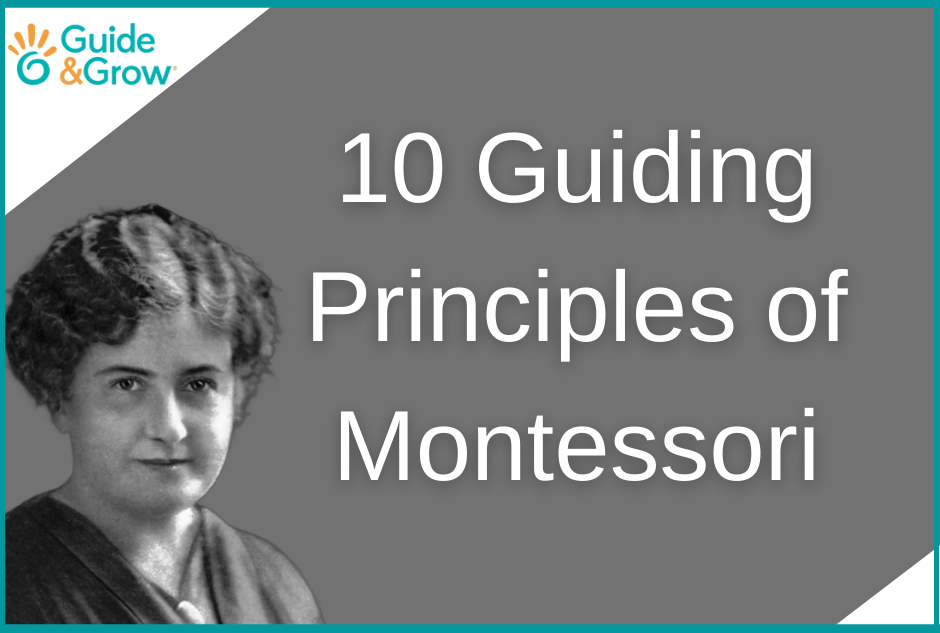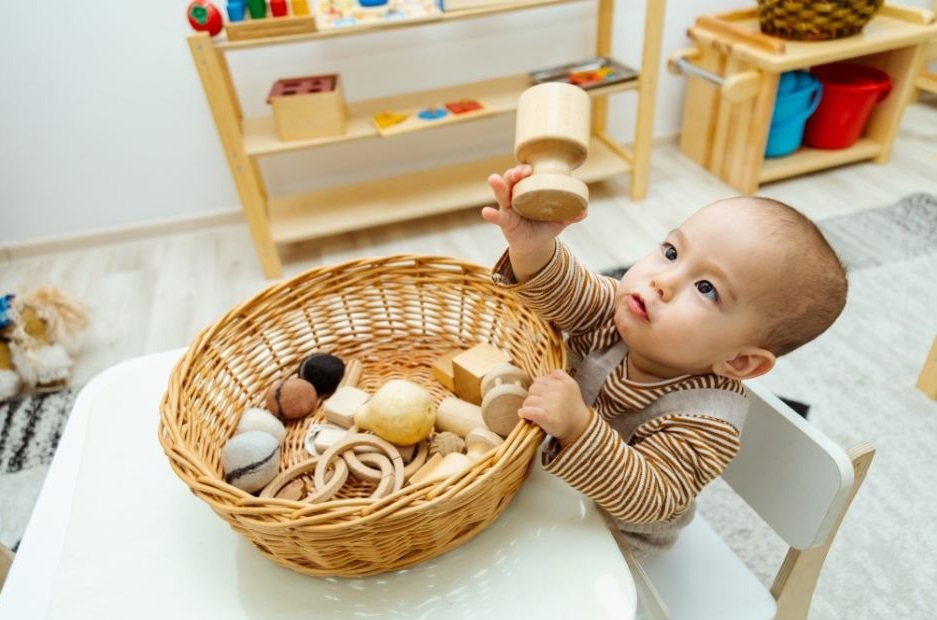Montessori is a complex, in-depth pedagogy that took Dr. Maria Montessori years of scientific observation and deliberate practice to develop. She adjusted the environment and developed carefully crafted materials to meet the student’s needs. Yet, the heart of the Montessori Method was not in the materials themselves, but in a set of founding principles Dr. Montessori established.
The 10 Guiding Principles
Principle 1: Respect for the Child
Respect for the Child is the major principle underlying the entire Montessori Method. Dr. Montessori believed that children should be recognized as confident, capable members of their environments and should be respected as such. Respect is shown for children by trusting in them, not interrupting their concentration, and allowing them freedom to make choices and to be independent.
Principle 2: The Absorbent Mind
Dr. Montessori’s research revealed that the first six years of life, termed the period of the “absorbent mind,” are the most crucial in a child’s development. During this time, the child’s mind has a sponge-like capacity to absorb information from their environment.
Principle 3: Sensitive Periods
Dr. Maria Montessori observed that children pass through specific stages in their development when they are most capable of learning specific knowledge and skills. She called these stages “sensitive periods.” These periods are essentially windows of opportunity for learning. Characteristics of sensitive periods include intense focus, repetition, commitment to a task, and periods of deep concentration.
Principle 4: The Prepared Environment
The Prepared Environment is a carefully prepared learning space where everything has a purpose and a place. A distinct sense of order exists that helps children develop logical thought processes. The fundamental idea is “order in environment and mind.”
Principle 5: Educating the Whole Child
Montessori pedagogy is a holistic approach that focuses on nurturing each child’s potential by providing learning experiences that support their intellectual, physical, social, and emotional development. All areas of a child’s development are connected and are viewed as equally important. The Montessori Curriculum not only includes language and mathematics, but also covers practical life, sensorial, and culture.
Principle 6: Follow the Child
Dr. Maria Montessori believed that children instinctively knew what their minds and bodies needed to learn and grow. She proposed that if adults carefully observed, they would be able to identify a child’s needs and interests and provide aligned activities and experiences. With that in mind, Montessori pedagogy proposes personalized learning that is tailored to each child’s unique stage of development, interests, and needs.
Explore the fundamentals of Montessori parenting with this free video by Sylvia Arotin, offering insights and strategies to empower and educate your child.
Principle 7: Freedom within Limits
Freedom within limits is an empowering concept that embraces the notion of the child as a competent being who is capable of learning and doing for themselves. Dr. Montessori observed that children learn best when they are given the freedom to move, to choose their own work, and to follow their interests. This freedom also operates within boundaries including respect for themselves, respect for others and respect for the environment.
Principle 8: Intrinsic Motivation
The Montessori approach proposes that learning is its own reward. Extrinsic rewards such as praise or stickers are not typically used. Instead, the focus is placed on the process, rather than the product as children derive a sense of accomplishment from completing an activity and learning to do it for themselves. This internal motivation encourages a child to look inward for feelings of satisfaction and also builds their confidence.
Principle 9: Independence
Dr. Maria Montessori advised that adults should never do for a child what they are capable of doing for themselves. Montessori provides the environment, the materials, and the guidance to allow children to learn to do and think for themselves.
Principle 10: Auto-Education
Auto-Education is based upon the belief that children are capable and willing to teach themselves if they are provided with the right materials. Dr. Montessori carefully developed materials designed to meet this need and empower children with the ability to direct their own learning. The adult’s role is simply to prepare the environment and offer gentle guidance and encouragement for children as they educate themselves.
The intricacies of the philosophy and the picture-perfect environments put on display on social media platforms may make Montessori seem overwhelming and unachievable, but these basic principles are the heart of the Montessori Method. Focus on your child as a capable, competent member of your home environment; follow their lead, offer them respect, and promote their independence and your child will flourish!






